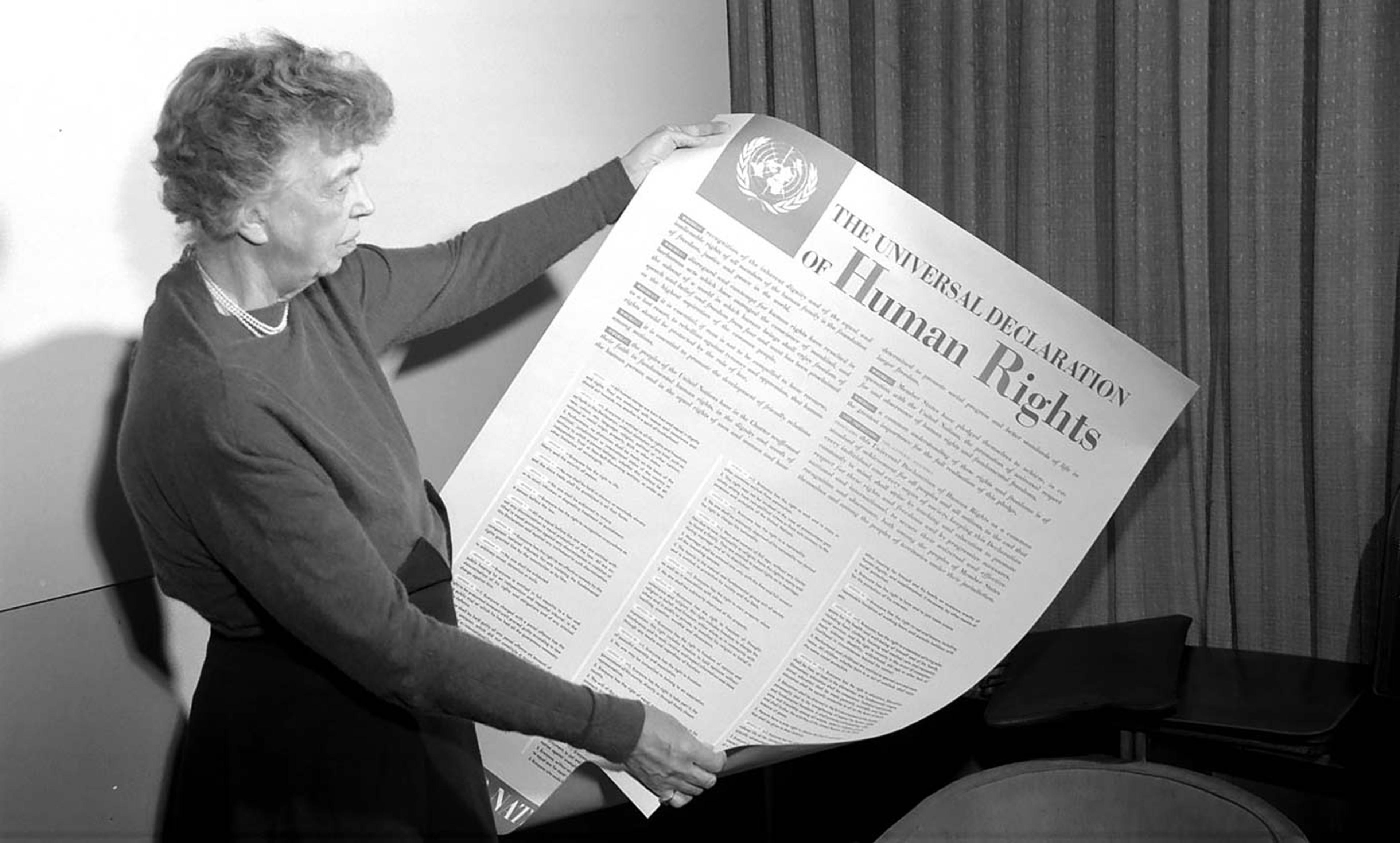Photo by Aaron Ontiveroz/The Denver Post/Getty
People disagree about morality. They disagree about what morality prohibits, permits and requires. And they disagree about why morality prohibits, permits and requires these things. Moreover, at least some of the disagreement on these matters is reasonable. It is not readily attributable to woolly thinking or ignorance or inattention to relevant considerations. Sensible and sincere people armed with similar life experiences and acquainted with roughly the same facts come to strikingly different conclusions about the content and justification of morality.
For examples of disagreement about content, think of the standards ‘vote in democratic elections’, ‘do not smack your children’, and ‘do not eat meat’. Some reasonable people recognise a moral duty to vote, or a moral prohibition on smacking or meat-eating; others do not. To see the depth of disagreement about justification, consider the variety of reasons advanced for the widely accepted moral standard ‘do not lie’. Should we refrain from lying because God commands it, because it promotes the greatest happiness of the greatest number, because in deceiving others we treat them as mere means to our ends, or because the virtue of honesty is a necessary condition of our own flourishing? Each of these reasons is persuasive to some and quite unpersuasive to others.
Reasonable disagreement about morality presents educators with a problem. It is hard to see how we can bring it about that children subscribe to moral standards, and believe them to be justified, except by giving them some form of moral education. But it is also hard to see how moral educators can legitimately cultivate these attitudes in the face of reasonable disagreement about the content and justification of morality. It looks as though any attempt to persuade children of the authority of a particular moral code will be tantamount to indoctrination.
The standard responses to this problem are as familiar as they are inadequate. We might deny that morality needs to be taught, putting our faith in the natural goodness of children or their propensity to discover and sign up to moral standards of their own accord. Or we might bite the indoctrination bullet and resolve to inculcate a selected moral code and associated justification, relying on manipulation and misrepresentation to prevent serious consideration of the alternatives. Or we might decline to educate in morality and simply educate about it, inviting children to reflect critically on a range of moral codes and decide for themselves which, if any, merits their compliance. But the objections to these responses are obvious, and serious.
I think we can do better than the standard responses. While it is true that the moral domain is rife with reasonable disagreement, it is not true that no moral standards are robustly justified. Reasonable disagreement about morality does not go all the way down. Some basic moral standards to which almost everyone currently subscribes enjoy the support of a decisive justificatory argument. Moral educators can properly aim to bring it about that children subscribe to these standards and believe them to be justified; and they can realise this aim without resorting to anything that resembles indoctrination.
The justificatory argument rests on two claims. The first is that all human beings, or at least all human beings living alongside others in social groups, are unavoidably confronted with a serious practical problem: what David Copp in 2009 called the problem of sociality. The second is that human beings can effectively ameliorate this problem by holding themselves and each other to some basic standards of conduct.
The problem of sociality arises because of three contingent but permanent features of the human condition. These features, sometimes described as the ‘circumstances of justice’, are (i) rough equality, (ii) limited sympathy and (iii) moderate scarcity of resources. Discussions of these features or circumstances are to be found in the writings of many philosophers, including Thomas Hobbes’s Leviathan (1651), David Hume’s A Treatise of Human Nature (1739), H L A Hart’s The Concept of Law (1961), G J Warnock’s The Object of Morality (1971), John Rawls’s A Theory of Justice (1971) and J L Mackie’s Ethics (1977).
It is not difficult to see why the combination of these features is a recipe for trouble. Because we are roughly equal in strength and intelligence, we each know that we have a reasonable chance of coming out on top in any physical or strategic conflict, and we are each aware that those around us know the same thing about their chances. Because our sympathy for strangers is limited, in the sense of being notably weaker than self-love and familial love, we are inclined to prioritise the safety and satisfaction of ourselves and our loved ones over the safety and satisfaction of others. And because resources are not abundant enough to satisfy everyone’s needs and wants, we are forced into competition with each other for access to goods in short supply. The clear implication of these circumstances, taken together, is that there is, in human social groups, a standing propensity to outbreaks of conflict and breakdowns in cooperation.
So, while we are often motivated directly by sympathy and self-interest to cooperate with each other and refrain from harming each other, these motives are not sufficient to the task of sustaining cooperation and averting conflict. They do not reliably yield peace and productivity. To tackle this problem we need a supplementary kind of motivation for keeping to cooperative agreements and treating each other in non-harmful ways. We need the kind of motivation that subscription to moral standards can provide. The basic moral standards justified by this argument include prohibitions on killing and causing harm, stealing and extorting, lying and cheating, and requirements to treat others fairly, keep one’s promises and help those in need. To deal with the danger posed by competition for resources and vulnerability to attack, there must be standards that afford protection to people and their property; and to overcome the distrust that threatens to frustrate our cooperative endeavours, there must be standards that oblige us to be fair, honest and reliable in our dealings with each other, and to extend each other a helping hand in times of need.
If moral education is to be rational, much of it will have to take the form of nondirective enquiry into controversial moral standards and justificatory arguments. But some of it, at least, can and should take the form of cultivating children’s subscription to moral standards and helping them to see why those standards are justified.
This Idea was made possible through the support of a grant to Aeon magazine from Templeton Religion Trust. The opinions expressed in this publication are those of the author(s) and do not necessarily reflect the views of Templeton Religion Trust.
Funders to Aeon Magazine are not involved in editorial decision-making, including commissioning or content approval.






